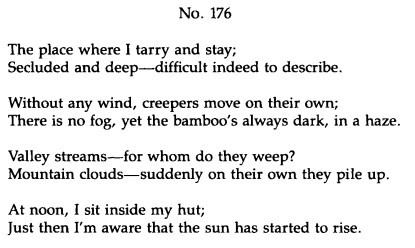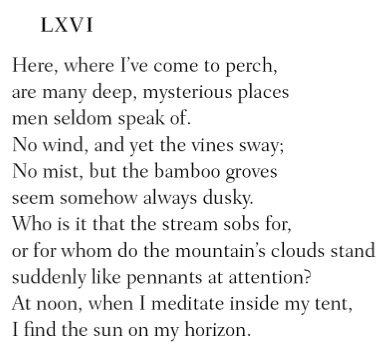This is what dysfunction looks like: On one hand, the president can’t get anything through Congress, which can’t pass its own agenda either, let alone get it by the president’s veto. (See Mike Allen and Jim Vanderhei’s forecast of an ugly fall in the legislature.) On the other hand, as Gordon Silverstein argues, “the Obama administration has steadily, and significantly built up and exploited presidential power.”
The most disturbing diagnosis is that we are now seeing the breakdown that was written into the Constitution but that we had long avoided for contingent reasons. Republicans are acting badly (in my opinion), and the president is pushing some constitutional limits–but the disturbing argument is that both sides are acting just as one would predict given the constitutional structure.
Bruce Ackerman laid it out 13 years ago in “The New Separation of Powers,” Harvard Law Review, 113 (2000), pp. 645-7:
One of our foremost students of comparative government, [Juan] Linz argues that the separation of powers has been one of America’s most dangerous exports, especially south of the border. Generations of Latin liberals have taken Montesquieu’s dicta, together with America’s example, as an inspiration to create constitutional governments that divide lawmaking power between elected presidents and elected congresses — only to see their constitutions exploded by frustrated presidents as they disband intransigent congresses and install themselves as caudillos with the aid of the military and/or extraconstitutional plebiscites. From a comparative point of view, the results are quite stunning. There are about thirty countries, mostly in Latin America, that have adopted American-style systems. All of them, without exception, have succumbed to the Linzian nightmare at one time or another, often repeatedly. Of course, each breakdown comes associated with a million other variables, but as Giovanni Sartori puts it, this dismal record “prompts us to wonder whether their political problem might not be presidentialism itself.”
It is possible, of course, to avoid the Linzian nightmare without re-deeming the Madisonian hope. Rather than all out war, president and house may merely indulge a taste for endless backbiting, mutual recrimination, and partisan deadlock. Worse yet, the contending powers may use the constitutional tools at their disposal to make life miserable for each other: the house will harass the executive, and the president will engage in uni- lateral action whenever he can get away with it. I call this scenario the “crisis in governability.”
Once the crisis begins, it gives rise to a vicious cycle. Presidents break legislative impasses by “solving” pressing problems with unilateral decrees that often go well beyond their formal constitutional authority; rather than protesting, representatives are relieved that they can evade political responsibility for making hard decisions; subsequent presidents use these precedents to expand their decree power further; the emerging practice may even be codified by later constitutional amendments. Increasingly, the house is reduced to a forum for demagogic posturing, while the president makes the tough decisions unilaterally without considering the interests and ideologies represented by the leading political parties in congress. This dismal cycle is already visible in countries like Argentina and Brazil, which have only recently emerged from military dictatorships. A less pathological version is visible in the homeland of presidentialism, the United States.
The logic is straightforward. Sooner or later you end up with a different party in control of each branch. Members of the legislature are not held accountable for the overall state of the country, because voters are more likely to blame (or reward) the president or the legislature as a whole than their own representative. Thus legislators have every incentive to make things go badly for the president until their own party takes the executive branch back. Meanwhile, the president wants to succeed, and getting the support of a backstabbing opposition looks increasingly unattractive, so he acts on his own. The result is a “crisis in governability”–at best.
Why did we not have this crisis before? (After all, we have had a presidential system since 1789.) I think we have had moments of it, but one phenomenon traditionally made it rare. Our parties were ideologically incoherent, because race, economics, and region caused cross-cutting fractures. In particular, the Democrats long accommodated both the most liberal and the most illiberal politicians on questions related to race. The result was a set of minority blocs in Congress: liberal big-city Democrats, Prairie populists, segregationist Dixiecrats, liberal Republicans, libertarian Republicans, etc. A president had the advantage of a prime minister in a parliamentary system: he could build a majority by assembling blocs. For instance, Reagan governed with a coalition of Republicans plus Dixiecrats, sometimes compromising with Tip O’Neill but also driving his own agenda through a willing Congress.
That kind of coalition politics became impossible once the parties aligned neatly into right and left, as they have done for the first time in US history. One party now controls each house at any given moment, and if it is not the same as the president’s party, they will lock horns. Almost nothing has been accomplished in the last three administrations, for good or ill, except wars and bursts of legislation during the narrow windows when the president has had a working majority because of an election or a terror attack: 1993-4, 2001-2, and 2008-9.
Linz found that 30 countries had borrowed our constitutional model, and all 30 faced constitutional meltdown. Are we now joining the trend?
 “As America has wallowed through an unprecedented decline in civic engagement, Peter Levine has been a lighthouse warning of the dangers of civic alienation. Now, he makes the encouraging case that although we will live for a while with the consequences of past mistakes, the worst of the storm is over. Professor Levine concludes with ten common sense strategies that can energize the people and their governmental institutions while preparing a new generation of Americans with the values and competencies to sustain our reinvigorated democracy.”—Bob Graham, United States Senator (1986-2004)
“As America has wallowed through an unprecedented decline in civic engagement, Peter Levine has been a lighthouse warning of the dangers of civic alienation. Now, he makes the encouraging case that although we will live for a while with the consequences of past mistakes, the worst of the storm is over. Professor Levine concludes with ten common sense strategies that can energize the people and their governmental institutions while preparing a new generation of Americans with the values and competencies to sustain our reinvigorated democracy.”—Bob Graham, United States Senator (1986-2004)
